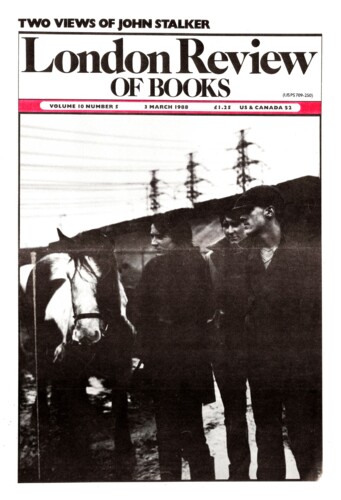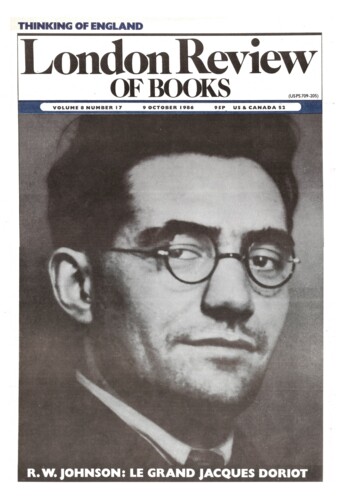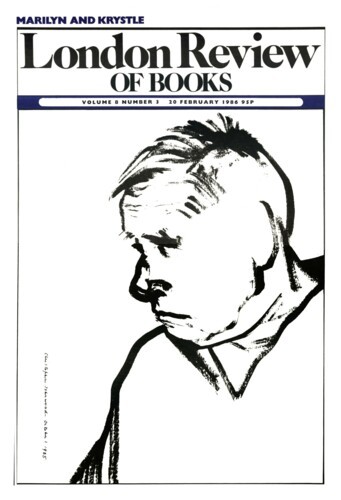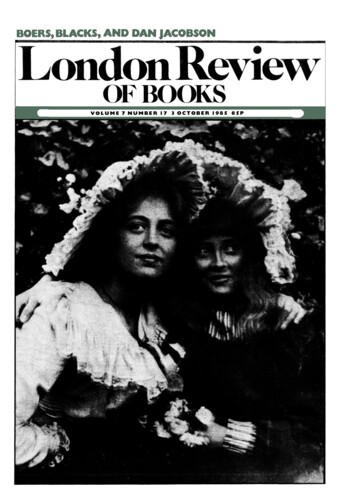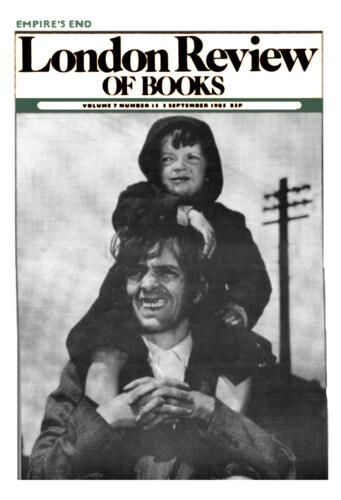Dancing in the synagogue, waiting at the well
Michael Church, 3 March 1988
Pursuing the truth about the McCarthyite witch-hunt via 17th-century Salem, Arthur Miller was one day transfixed by an etching in a library. It had been made by an eyewitness of the original trials, and showed a bearded judge with arms upraised in horror as he watched a covey of girls screaming and clawing at invisible tormentors. This bore Miller back to a scene he had witnessed at the age of four, while under the tutelage of his great-grandfather in the 114th Street Synagogue. Told at first not to look, he heard ecstatic singing, and squinting through his fingers saw 15 old men dancing in a circle with prayer shawls over their heads. The playwright instantly saw the connection: ‘the moral intensity of the Jews and the clan’s defensiveness against pollution from outside the ranks’. Salem, he realised, was his own inheritance, and he felt strangely at home.
